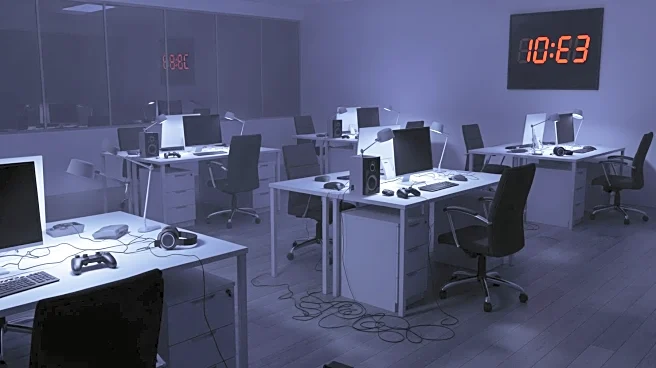What is the story about?
What's Happening?
Amancio Ortega, the billionaire founder of Zara, has sold his Midtown Manhattan office building located at 366 Madison Avenue for approximately $50 million. This sale represents a significant loss, as Ortega's family office, Pontegadea, originally purchased the property for $115.5 million in 2006. The transaction highlights the ongoing challenges in New York City's office real estate market, which has been struggling since the pandemic led to widespread vacancies. The 17-story building, situated near Grand Central, is being acquired by the Sioni Group, with Eastdil Secured facilitating the deal. Despite the loss, Ortega continues to invest in real estate, having recently acquired properties in Paris and Barcelona.
Why It's Important?
The sale of the office building at a substantial loss underscores the difficulties faced by the commercial real estate sector in New York City. The pandemic has accelerated a shift in the market, with many office spaces remaining vacant and prompting conversions into residential units. This trend is part of a broader effort to address the city's housing demand while reducing the surplus of office space. Ortega's decision to sell at a loss reflects the pressures on property owners to adapt to changing market conditions. The transaction also highlights the resilience of Ortega's investment strategy, as he continues to expand his real estate portfolio internationally.
What's Next?
The conversion of office buildings into residential spaces is expected to continue, with projects like 25 Water Street leading the way. This initiative, along with others at 55 Broad and 5 Times Square, aims to create thousands of new apartments, potentially easing the housing shortage in New York City. As the market evolves, stakeholders in the real estate industry may need to reassess their strategies to align with the shifting demand for residential properties. The outcome of these conversions could influence future investment decisions and urban planning in the city.
Beyond the Headlines
The transformation of office buildings into residential units raises questions about the long-term impact on urban landscapes and community dynamics. As more properties undergo conversion, there may be implications for infrastructure, public services, and neighborhood identities. Additionally, the shift could affect employment patterns and commuting behaviors, as the traditional office-centric model of work continues to evolve.















